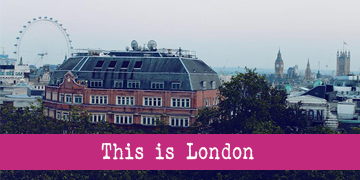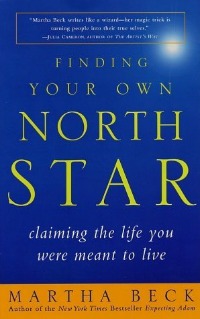 This is a slight deviation from my usual Expat Diaries posts, which I write with the hopes of shedding light on what it’s like to move abroad and inspiring other wild hearts to create their lives in the place that their soul yearns for.
This is a slight deviation from my usual Expat Diaries posts, which I write with the hopes of shedding light on what it’s like to move abroad and inspiring other wild hearts to create their lives in the place that their soul yearns for.
But after reading this article, Why Are White People Expats When the Rest of Us Are Immigrants?, it got me thinking about the privilege of being able to up and move to a new country with a relative ease, so I felt obliged to comment on it.
The article raises the important point that the words “expat” and “immigrant” are loaded terms, steeped in assumptions about social class, country of origin, and economic status. You don’t hear politicians complaining about “the expat problem.”
Not only were there few barriers to my move to the UK, but there’s a whole class of visas that allows young Canadians to live and work in another countries for up to 2 years. And although applying for a long-term visa is both time-consuming and expensive, the colour of my skin and the country emblazoned on my passport are likely to make the process somewhat easier for me.
But why should these opportunities be available to me but not a similar woman born in a different country?
I understand that borders and laws and nations exist to make life easier. To provide order. To help keep us safe. But inherent in many of these laws are assumptions about who a person is because of the colour of their skin, where they were born, or how much money their family makes. Most of us like to think that we are immune to most prejudice, but the language we use can also perpetuate this kind of thinking.
This series would have a very different tone if it were titled “The Immigrant Diaries” – a word that suggest struggle and often poverty. Whereas the “word” expat suggests a certain romantic and luxurious lifestyle, even though its definition (a person who lives outside their native country) is almost identical to “immigrant” (a person who comes to live permanently in a foreign country).
That’s not to say that either word is inherently bad or that I plan to stop using them, only that it’s important to think about the context surrounding our language and to be intentional with when and why we use it.
Certainly moving to the UK has had it’s share of difficulties but never have I had to deal with accusations that I’m stealing someone’s job or that I don’t belong here. When I do mention that I was born in Canada, it usually results in an even warmer welcome.
So today I just wanted to offer this gentle reminder of the privilege that comes alongside being an expat and that there is power in the words we use, so wield them wisely.
I would love to hear your thoughts on the article. Does it make you uncomfortable using the word expat?
Love, handwritten letters, & cross-country train rides,

P.S. What do YOU want to know about living abroad? Let me know and I’ll talk about it in a future post.
 The life you want is possible and it all starts with learning to adore yourself.
The life you want is possible and it all starts with learning to adore yourself.



















Well
I live in Europe, Portugal and for some time now I’m trying to find a job in UK because they offer better salary, better work conditions, etc, than in Portugal.
So far I only got replies like this: Oh your portfolio is amazing but you do not live in UK, we don’t want immigrates.
I even had one reply that said: Please don’t contact us every again. We don’t hire people from outside of UK.
And you know what? I’m white, my English is no bad and I would love to spend a few years outside of Portugal… But I face immigration discrimination. I visit London once a year and I see so many people from other countries than I get this responses from recruitment agencies….
I don’t want to work in another country beside UK (in Europe), because of the language…
Kisses
I am an American living in Guatemala for a year, and I’ve seen for myself this double standard. Americans living in Guatemala are considered Expats, while people from Guatemala moving to the USA are always considered immigrants regardless of income level or social status. A person of any nationality can enter Guatemala without a visa for 90 days, whereas any Guatemalan who wants to travel to the USA has to be pre-approved for a travel visa, which can be a lengthy and expensive process. This has definitely given me something to think about!
I love this. My dad lives in the States and my mum spent a few years living in France and those situations are both readily accepted – even though my mum ended up needing a lot of free French healthcare, nobody suggested that she was scrounging by using it. I find it so interesting that a lot of the people I see complaining about “immigrants coming over here” are the same people who plan to retire to Spain or Italy or somewhere else sunny – it’s fine if you’re British, moving abroad for a better life, but not if you’re Polish, moving to Britain for the same reason. That makes no sense to me.
Oh yeah, they love Canadians here. I get a bit of CA dazzle – they always ask why in the hell I moved to the UK! I use expat. I’m American, mixed race but mostly Irish, and my immigration battle was hellish (which I cannot actually pinpoint as a race issues BUT a non-mixed race friend had 0 issues with her immigration process so maybe it didn’t help me any). And I don’t differentiate. I am aware that when the papers complain about immigrants, I’m lumped in there too. I’m a foreigner by birth, emigrated from the country I was born in, and earned my citizenship (it wasn’t easy, dude). That makes me an immigrant, just like everyone else from any other country that does the same thing. I use expat mainly for the Americans, to be honest. It’s un-American to emigrate, but being an expat is acceptable. Go figure.
Bravo! Examining the socio-economic power and privilege is so important. It is the unfortunate truth that profiling is rampant in border security.
The only major aspect missing from the conversation is refugee status which is in itself problematic. Should a country accept economic refugees into their country, rather than just worn torn areas?
Personally, my bias is that I think of expat as someone who is likely living temporarily in a country, whereas an immigrant is someone that is taking on the citizen process.